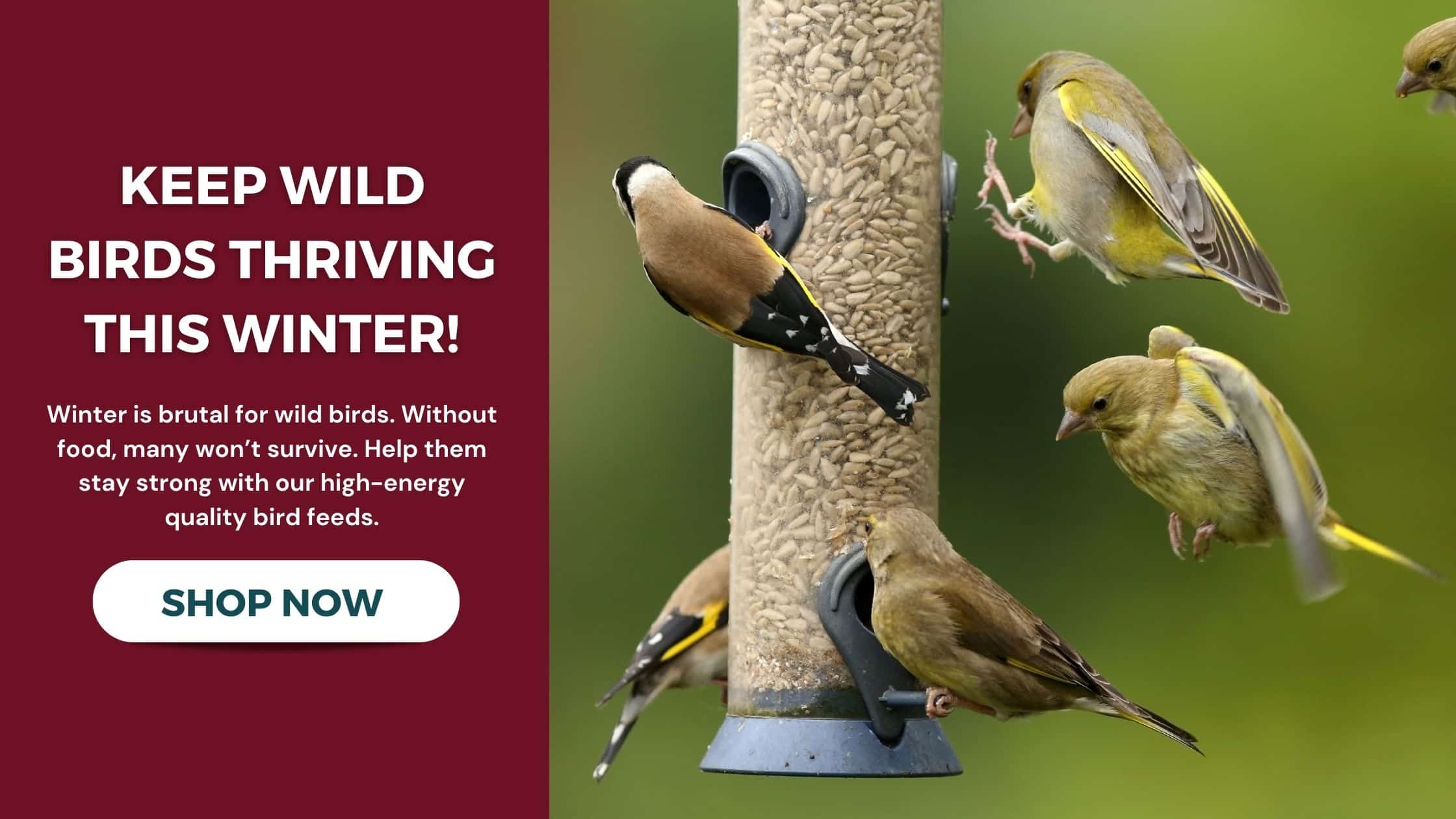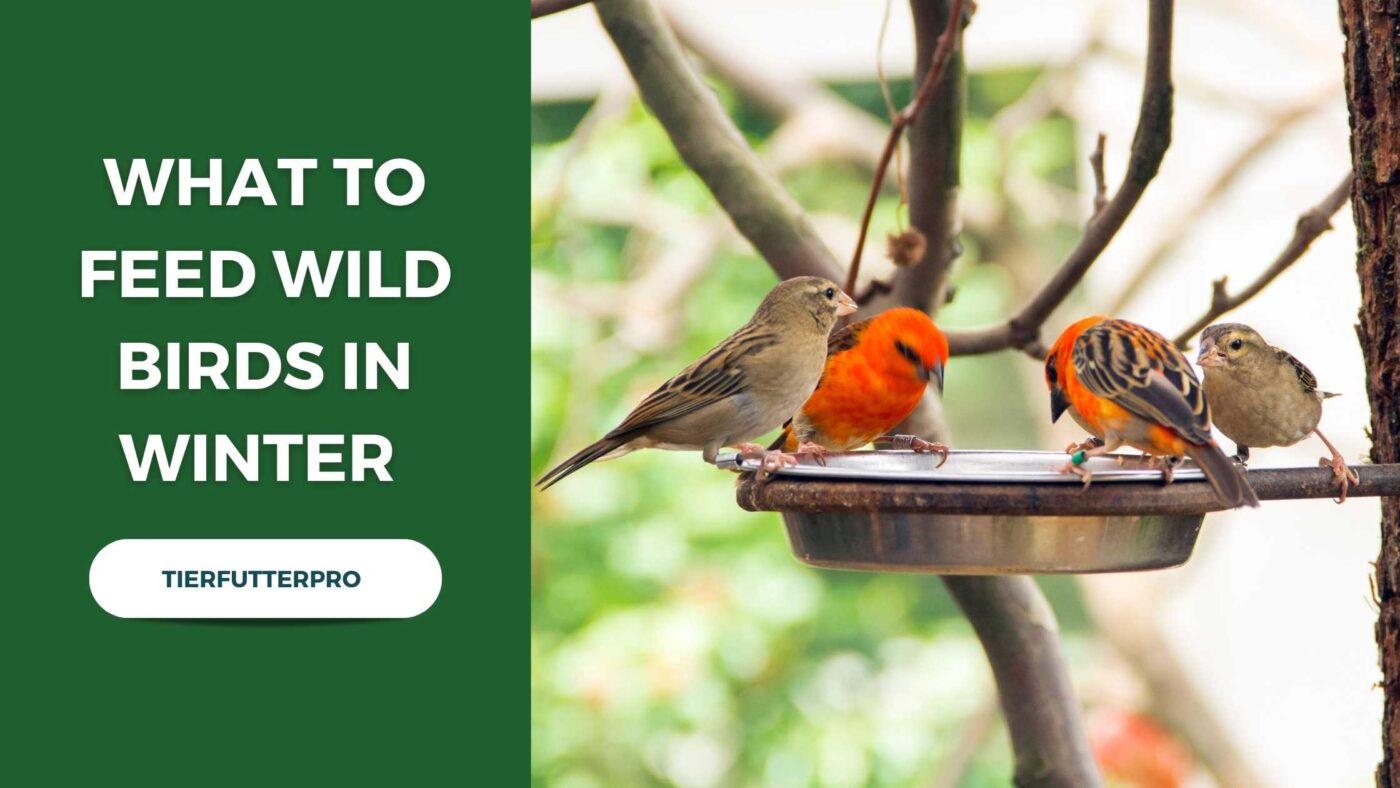Sie bestellen als “Gast”!
Wild Birds
What You Should Feed Wild Birds in Winter
When winter comes and the weather gets cold, it’s hard for wild birds to find enough food to stay alive.
The ground is covered in snow, bugs are gone, and wild seeds and nuts are hard to find.
Now is the time when your role is very important. You’re not just giving wild birds food in the winter when you feed them; you’re giving them a way to stay alive.
What you get in return is the pleasure of seeing lots of pretty birds come to your yard in the winter.
Here, we’ll walk you through everything you need to know about what to feed wild birds in winter, which foods to avoid, and how to create a safe environment for them.
What You Should Feed Wild Birds in Winter
In the winter, you should feed wild birds high-energy, high-fat foods to keep them warm and well-fed. The finest choices are black oil sunflower seeds, suet, unsalted peanuts, Nyjer seeds, mealworms, and fruits such as chopped apples or raisins.
These feeds offer birds the critical energy they require during the winter months when natural sources are scarce.
1. Black oil sunflower seeds
One great choice is black oil sunflower seeds. Birds like cardinals, chickadees, finches, and woodpeckers love them.
They’re easy for them to crack open and are full of fat and protein.
2. Suet
Suet is another excellent winter food for the wild birds. Made from animal fat, suet provides a rich source of calories that birds desperately need in the cold.
Birds such as nuthatches, woodpeckers, and jays will eagerly visit suet feeders during winter months.
You can find suet cakes mixed with seeds, fruit, or mealworms for added nutritional benefit.
3. Unsalted peanuts
Unsalted peanuts are also ideal. Rich in fats and proteins, peanuts attract birds like blue jays, great tits, and woodpeckers.
Be sure to avoid any salted or flavoured varieties, as those can be harmful to birds.
4. Cracked Corn and White Millet
Don’t forget about cracked corn and white millet. These are excellent for ground-feeding birds such as sparrows, juncos, and doves.
Simply scatter them on a low platform feeder or even directly on the ground, away from snow buildup.
5. Nyjer Seeds
For smaller birds like goldfinches and siskins, nyjer (or thistle) seed is perfect. It’s high in oil content and best served in a special feeder that prevents spillage.
6. Dried or Live Mealworms
You can also offer dried or live mealworms, which replicate a bird’s natural insect diet.
Wild birds such as robins, blackbirds, and bluebirds like mealworms so much.
7. Chopped Apples, Raisins, or Cranberries
If you have leftover fruits from your kitchen, such as chopped apples, raisins, or cranberries, these can be a sweet treat for birds like waxwings and thrushes.
Fruit offers a burst of sugar and hydration that can be especially helpful during prolonged cold spells.

What to Avoid Feeding Wild Birds in Winter
While it might be tempting to share food scraps with wild birds, not everything in your kitchen is bird-safe. Foods that are high in salt, like chips or salted nuts, are dangerous to birds and should never be offered.
Bread, for example, offers little nutritional value and can cause digestive issues.
Dairy products, including milk, are also unsuitable since birds can’t digest them properly.
Raw or cooked meat should be avoided, too, as it can spoil quickly in the cold and attract unwanted predators to your garden.
The same goes for cooking fats that have been mixed with meat juices or seasonings—these can cause more harm than good.
When in doubt, it’s always best to stick with foods specifically designed for wild birds during the winter season.
You can buy premium-quality wild bird feeds from Tierfutterpro.
You Can Make the Winter Easier for Them
In the winter, feeding wild birds is a fun and helpful way to enjoy nature.
You can really help by giving them high-energy foods like peanuts, sunflower seeds, and suet.
Don’t forget to keep feeders clean, offer water, and provide shelter.
You can make your backyard a safe place for birds to spend the winter with a little effort.
Ready to get started? Stock up on the finest quality single seeds now!

